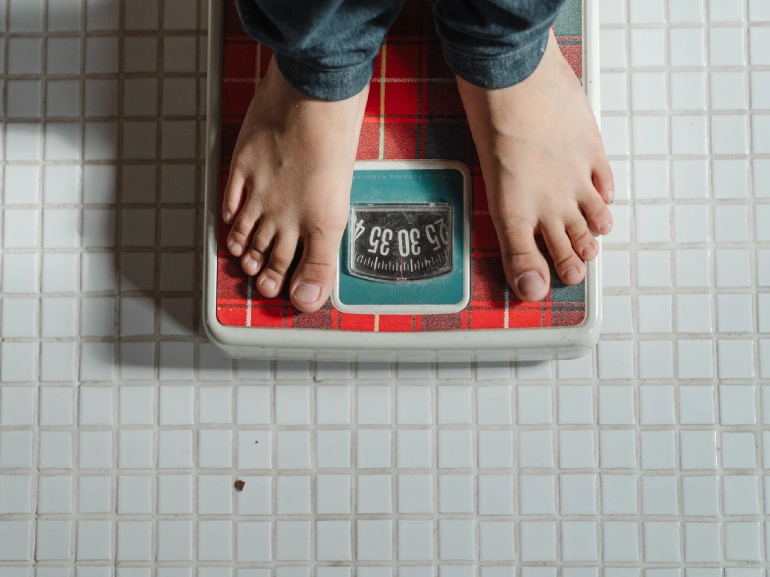- Regular exercise, a balanced diet, and maintaining social connections are crucial for caregivers’ physical and emotional well-being.
- Regular breaks and prioritizing good sleep are vital self-care practices to prevent burnout and maintain overall health.
- Engaging in leisure activities and maintaining your identity outside caregiving roles can significantly reduce stress.
- Self-care is not neglect but a necessity for caregivers to ensure their well-being and provide the best possible care to their loved ones.
As a middle-aged woman caring for an ailing senior, it’s essential to remember that self-care isn’t a luxury—it’s a necessity. Balancing your needs while tending to someone else’s can feel like an uphill battle, but adopting self-care strategies will ensure your physical and mental well-being. This guide provides practical, implementable self-care tips uniquely catered to your situation.
Improve your Lifestyle
Improving your lifestyle entails incorporating habits that promote physical health, mental clarity, and emotional equilibrium— delve into some actionable steps to achieve this. Here are some tips:
Make Time for Physical Exercise
Regular physical exercise is more than just maintaining physical fitness; it’s about nurturing your overall well-being. Allocate a specific timeframe each day for a workout—a brisk walk around the neighborhood, a yoga session, or a dance class. Exercise releases endorphins, commonly known as ‘feel-good’ hormones, which help mitigate stress and elevate mood.
Moreover, regular physical activity improves sleep, essential for replenishing energy reserves. Remember, you don’t need to adhere to a strenuous workout routine. Simple, enjoyable exercises incorporated into your daily schedule can significantly enhance your health and stamina, better equipping you to care for your loved one.
Nourish your Body

Maintaining a balanced diet is vital in nurturing your body and supporting your energy levels throughout the day. Prioritize consuming nutrient-dense foods—fruits, vegetables, lean proteins, and whole grains—that provide essential vitamins and minerals. Additionally, stay hydrated and limit your intake of processed foods and those high in sugar.
Hydration and nutrition significantly impact your mood, energy, and overall well-being, making it easier to perform your caregiving duties. Furthermore, establish regular eating routines, as erratic meal times can disrupt your digestion and energy levels.
If time for meal preparation is a concern, consider prepping meals in advance or utilizing a healthy meal delivery service. These mindful dietary choices can be a significant step in your self-care journey, boosting your physical health and enhancing your capacity to care for your loved one.
Maintain Social Connections
While it’s easy to feel isolated as a caregiver, it’s fundamental to maintain your social connections. Connecting with friends, and family, or joining a support group can provide emotional sustenance, allowing you to vent, seek advice, or enjoy lighthearted conversation. These social interactions can also remind you of your identity outside your role as a caregiver.
Additionally, consider participating in activities you love—reading a book, painting, or any hobby that brings you joy. These activities contribute to your happiness and help reduce stress and anxiety. Balancing caregiving responsibilities with personal leisure activities and social interactions is a crucial aspect of self-care. Remember, taking care of your own well-being doesn’t mean you’re neglecting your loved one; rather, it ensures you remain healthy, happy, and able to provide the best care possible.
Take Breaks
Taking regular breaks is an essential aspect of self-care, but it’s often overlooked by caregivers who may feel they’re shirking their responsibilities. However, breaks are vital to replenish your energy and prevent burnout. Take short breaks throughout the day, even if just stepping outside for fresh air or enjoying a hot cup of tea.
Consider asking a trusted friend or family member to relieve you for a few hours each week. This time away can allow one to participate in leisure activities, self-reflection, or rest. Remember, taking time for yourself is not selfish—it’s necessary. Regular breaks can refresh and rejuvenate your mind, allowing you to return to your caregiving duties with renewed vigor and a positive outlook.
Prioritize Sleep

Good sleep is fundamental to overall health and well-being. As a caregiver, you might find your sleep routine disrupted due to your responsibilities. However, prioritizing sleep is as important as any other self-care practice. Ensure you get sufficient rest by establishing a regular sleep schedule and creating a serene, clutter-free sleep environment.
Avoid caffeine and screen time close to bedtime, as these can interfere with your ability to fall asleep. Incorporate relaxing activities into your nighttime routine, like reading, meditating, or warm bathing. If you’re struggling with insomnia or persistent sleep issues, it might be worth exploring professional help. Remember, adequate sleep is crucial for physical health, mental clarity, and emotional stability. By prioritizing rest, you’ll be better equipped to face caregiving challenges while preserving your well-being.
Seek Professional Support
Reaching out to professionals can be significantly beneficial in your caregiving journey. Many resources are available, ranging from mental health professionals who can help manage stress and emotional turmoil, to hospice care services that provide comprehensive care for your loved one in the comfort of your home.
Hospice care services offer a multidisciplinary approach to end-of-life care, including pain and symptom management, emotional and psychological support, and assistance with daily activities. It also provides respite care, giving caregivers a much-needed break to recharge.
Engaging with hospice services ensures your loved one receives expert care tailored to their needs. Still, it also provides you with additional support and the chance to focus on self-care, enhancing the overall quality of life for you and your loved one.
In conclusion, remember, that your well-being matters as much as your loved one’s. Take time for self-care, engage in healthy habits, and don’t hesitate to seek professional support when needed. You’re not alone in this journey—reach out, seek help, and care for yourself too.



